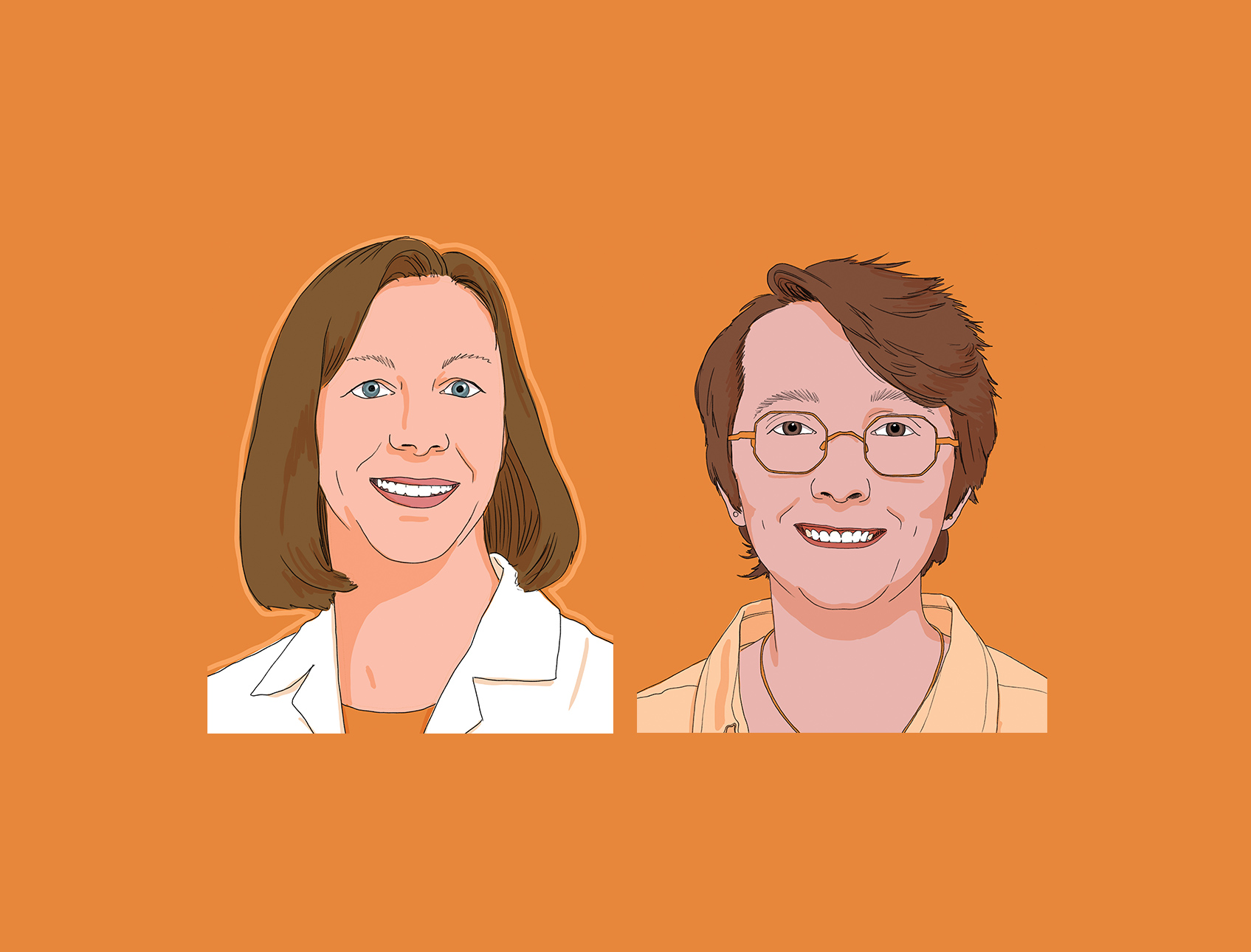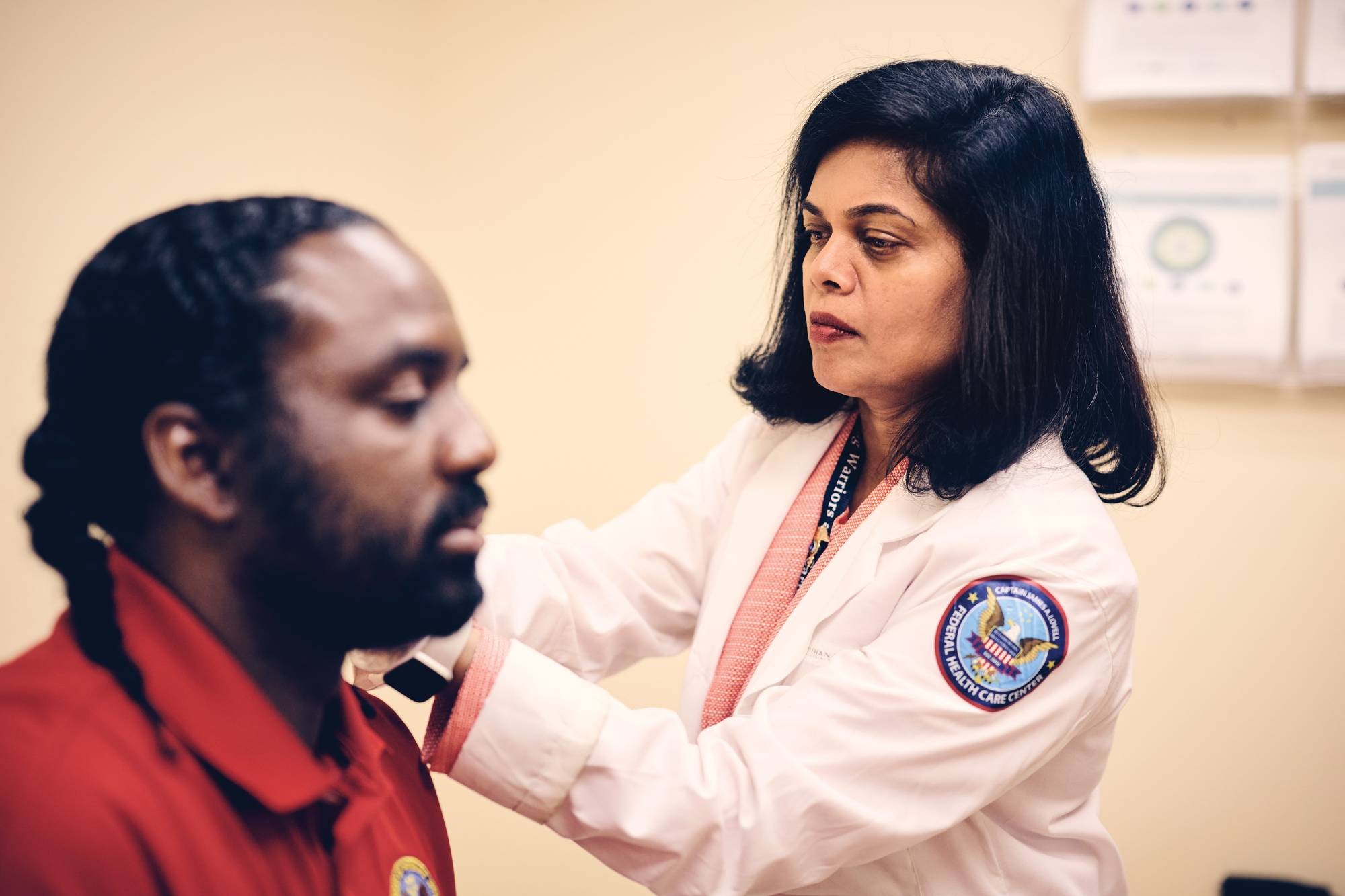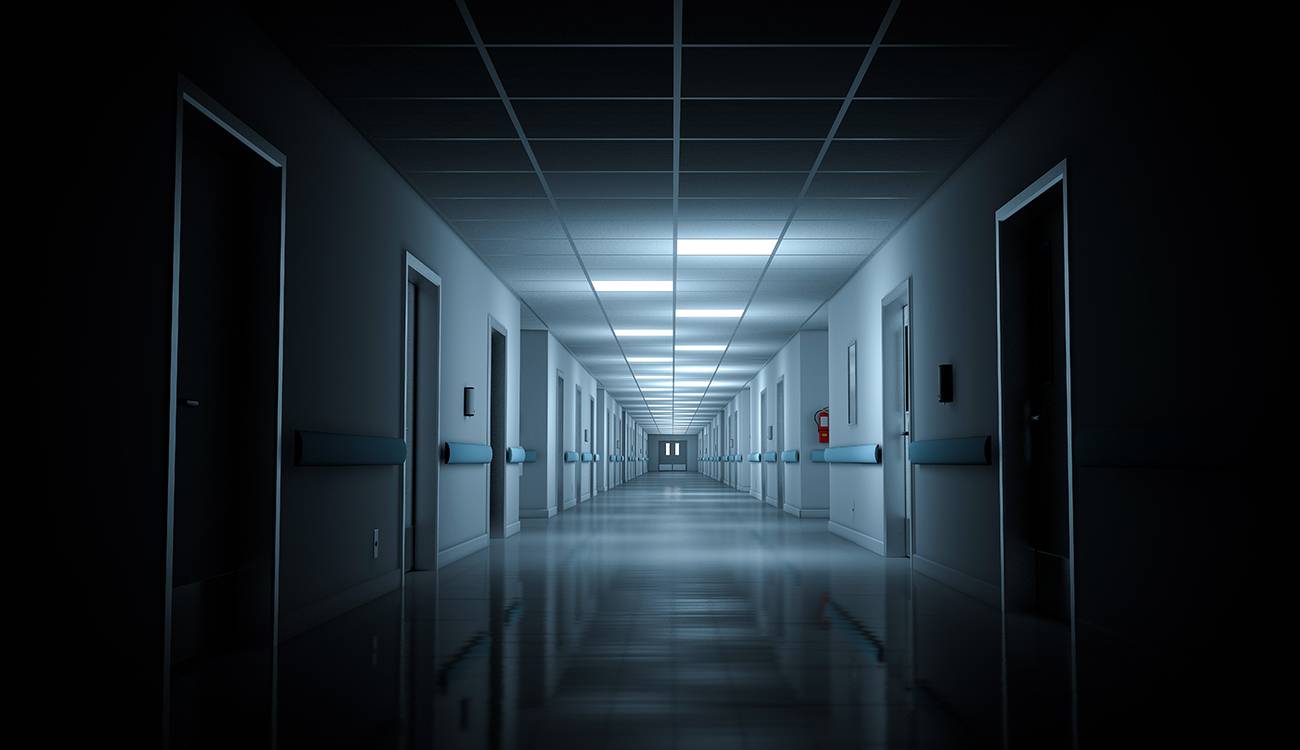Aubrey Penney is the academic program coordinator for the School of Graduate and Postdoctoral Studies at Rosalind Franklin University of Medicine and Science.
Author Page
Collaborative Transformation
Illustration by Michelle KondrichTeaching & Learning
Beth Stutzmann, PhD, director of the RFU Center for Neurodegenerative Disease and Therapeutics, mentors graduate student Elise Webber, who is working toward her PhD in neuroscience in the School of Graduate and Postdoctoral Studies. Here, they talk about the transformative power of interprofessional collaboration to change the trajectory of a research project — or an entire career.
Elise Webber: As graduate students, it’s really easy to just focus on your own project, but if you reach out to other scientists, you never know when you’ll come across something that opens up brand-new possibilities!
Beth Stutzmann: Yes, most scientists have a relatively narrow band of expertise, so you call in others to complement your own.
EW: It’s been really enlightening to see how it all comes together. For example, working with the Hunsberger lab examining the effects of psilocybin on memory in Alzheimer’s models has opened up entirely new questions and avenues for my thesis work.
BS: We have unique opportunities here at RFU. I’m thinking of our drug discovery work with the College of Pharmacy. I couldn’t even pretend to have sufficient knowledge of medical chemistry for that project, but for Dr. John Buolamwini, that’s his area of expertise. And patch clamp electrophysiology isn’t quite in his wheelhouse, but together we can combine those skill sets and expand our opportunities.
EW: The collaborations we have with other labs are a great reminder of how interconnected RFU is.
BS: There are so many more examples: Working on reprogrammed human neurons with Drs. Marr and Peterson (neuroscience), RNA biomarkers with Dr. Potashkin (cellular and molecular pharmacology) and Dr. Whalley (microbiology and immunology), and collaborating with Dr. Jan Urban (physiology and biophysics) on stress and chronic brain injury …
EW: Oh, yes!
BS: We’ve been able to generate a lot of funding through our complementary expertise, and reach into exciting new directions we couldn’t reach separately.
EW: I couldn’t agree more. The collaborations I’ve experienced in the lab have not only opened up new avenues for my thesis work, but provided me with mentors of different backgrounds who have helped me to shape my own identity as a researcher.
Published November 21, 2025

